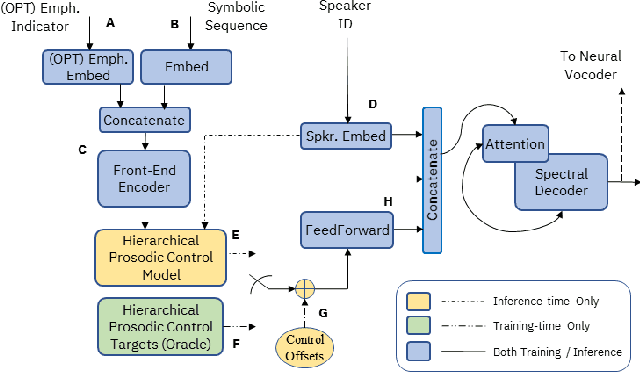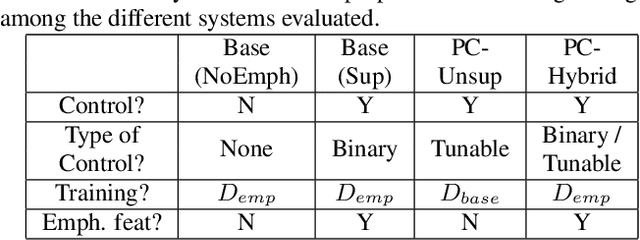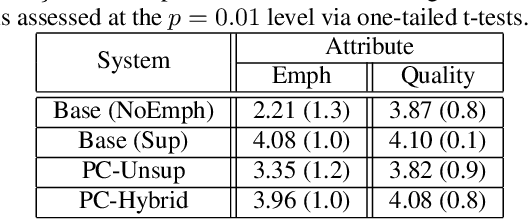Supervised and Unsupervised Approaches for Controlling Narrow Lexical Focus in Sequence-to-Sequence Speech Synthesis
Paper and Code
Jan 25, 2021



Although Sequence-to-Sequence (S2S) architectures have become state-of-the-art in speech synthesis, capable of generating outputs that approach the perceptual quality of natural samples, they are limited by a lack of flexibility when it comes to controlling the output. In this work we present a framework capable of controlling the prosodic output via a set of concise, interpretable, disentangled parameters. We apply this framework to the realization of emphatic lexical focus, proposing a variety of architectures designed to exploit different levels of supervision based on the availability of labeled resources. We evaluate these approaches via listening tests that demonstrate we are able to successfully realize controllable focus while maintaining the same, or higher, naturalness over an established baseline, and we explore how the different approaches compare when synthesizing in a target voice with or without labeled data.
 Add to Chrome
Add to Chrome Add to Firefox
Add to Firefox Add to Edge
Add to Edge